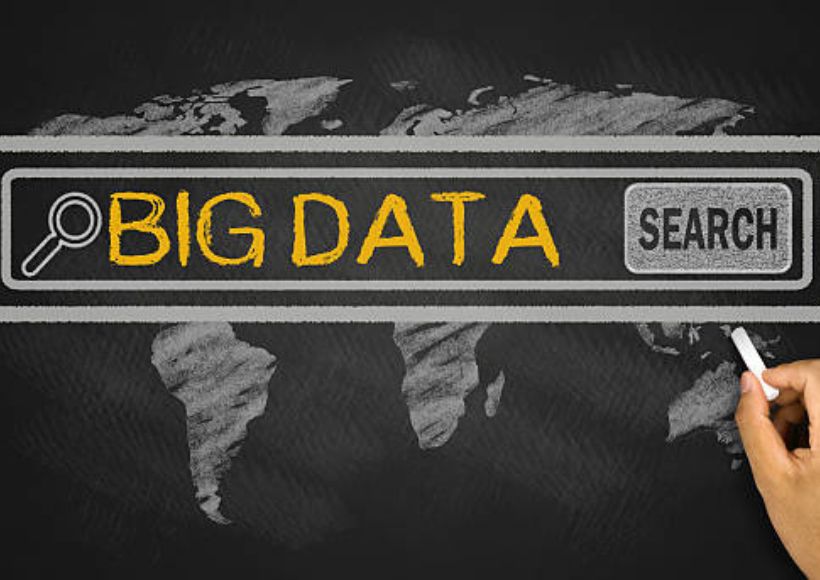Main Differences Between Big Data And Business Intelligence

Big Data collects and processes vast, diverse data to uncover insights. Business Intelligence primarily analyzes structured data for historical insights. Together, they empower organizations to make data-driven decisions by leveraging the strengths of Big Data’s versatility and BI’s structured reporting and analysis.
What Is Big Data?
Big Data refers to the vast and complex datasets that exceed the capabilities of traditional data processing tools. It encompasses large volumes of structured, semi-structured, and unstructured data, often collected from various sources like social media, sensors, and weblogs.
Big Data solutions use technologies like Hadoop and Spark to store, process, and analyze this data efficiently. The goal is to extract valuable insights, patterns, and trends to inform decision-making, improve operations, and drive innovation in diverse fields, including business, healthcare, finance, and scientific research. Big Data is characterized by the 3Vs: Volume, Variety, and Velocity, reflecting its size, diversity, and real-time nature.
What Is Meant By Business Intelligence?
Business Intelligence (BI) is a technology-driven process that involves collecting, integrating, analyzing, and presenting data to support informed decision-making within an organization. It encompasses computer applications, infrastructure, and practices designed to access and analyze data collected by companies. BI enables businesses to transform raw data into valuable insights and actionable information.
It plays a crucial role in optimizing operations, predicting issues, identifying opportunities, and suggesting strategies for improvement. BI often works with Big Data, using its data sources and analytical techniques to provide meaningful, data-driven recommendations and help organizations make more informed and strategic choices.
Differences Between Big Data And Business Intelligence
Big Data and Business Intelligence (BI) are two distinct but interconnected data management and analysis fields.
Here are the main differences between them
Functioning
Big Data solutions focus on processing data on the fly, allowing them to handle vast volumes of diverse and often unstructured data in real time, regardless of the source or format. Business Intelligence, in contrast, primarily works with structured data stored in centralized databases or data warehouses. It operates offline, relying on historical data for analysis and reporting. Big Data emphasizes rapid, dynamic data processing, while Business Intelligence relies on predefined data structures and is typically used for structured, retrospective analysis and decision support.
Prosecution
Big Data relies on massively parallel processing, where multiple instructions are executed simultaneously to optimize data handling speed. The results are compared, grouped, and analyzed before presenting the outcome. In contrast, Business Intelligence operates through queries to a structured database, where data is retrieved based on predefined queries and analyzed offline, providing insights based on historical data rather than real-time, parallel processing.
Data Storage
In Big Data, data is distributed across multiple servers in various locations, each with its physical address. Distributed file systems are used to ensure flexibility and security. In contrast, Business Intelligence requires data to be pre-stored on a centralized server before processing and analysis. This means that BI relies on a structured, organized data repository, whereas Big Data uses distributed storage to efficiently handle vast and diverse data sources.
Analysis Of Data
Big Data excels in analyzing diverse and often unstructured data, making it valuable for handling the majority of information on the Internet, which is semi-structured or unstructured. It can process both historical and real-time data. In contrast, Business Intelligence relies on structured, pre-classified, and stored data, limiting its scope to past information. Big Data’s flexibility and capacity to work with various data formats give it an edge in addressing today’s digital world’s evolving and complex data landscape.
Professional Profiles
Professionals working with Big Data typically possess technical backgrounds, including engineers, statisticians, and mathematicians. They are responsible for handling and analyzing large volumes of data from diverse sources. In contrast, Business Intelligence teams consist of individuals with backgrounds in fields like Business Administration (ADE), Economics, and Marketing. They focus on structured data analysis and reporting to support strategic decision-making.
From a departmental perspective, Big Data teams often report to the Chief Technology Officer (CTO). In contrast, Business Intelligence teams may report to the Chief Strategy Officer (CSO) or even the CEO if data analysis is pivotal. Despite their differences, both technologies enable effective information management, automation, and predictive analytics, ultimately enhancing business profitability.
Conclusion
Organizations often use both Big Data and Business Intelligence to understand their data and make informed decisions comprehensively. They complement each other, with Big Data providing the capability to handle large and diverse datasets, while BI offers structured reporting and historical analysis.
Also Read : Do You Know What Is Business Intelligence And Why It Is An Advantage For Your Business?




